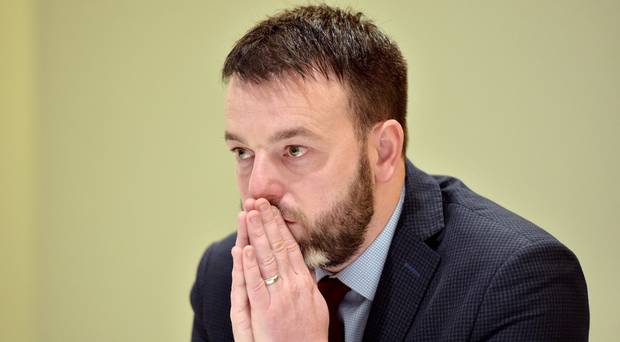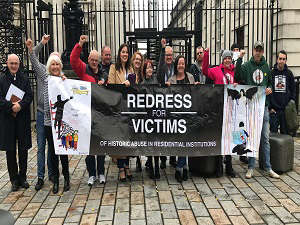
By Richard Wheeler, PA Parliamentary Editor
An MP “broke no rules” by using parliamentary privilege to name a former British soldier accused of murdering two men during Bloody Sunday, the Commons Speaker has said.
SDLP leader Colum Eastwood’s comments were made during consideration of legislation and therefore the sub judice rule did not apply, Sir Lindsay Hoyle added.
Sub judice, when in operation, aims to prevent MPs or Lords from referring to a current or impending court case to avoid possibly influencing the legal outcome of the case.
Northern Ireland Secretary Brandon Lewis later went on to accuse Mr Eastwood of using “emotive comments for soundbites” during exchanges in the Commons chamber over the UK Government’s proposals to address legacy issues.
On Tuesday, Mr Eastwood used parliamentary privilege to identify Soldier F – who cannot be named for legal reasons.
The Foyle MP intervened on a speech by shadow defence minister Stephanie Peacock as the Commons considered amendments to the Armed Forces Bill.
Mr Eastwood made allegations against the soldier before adding: “For 50 years he’s been granted anonymity.
“Now the Government wants to give him an amnesty.”
Parliamentary privilege enables MPs to say whatever they wish in the Commons without fear of being sued for defamation.

Mr Eastwood’s actions were condemned by some, with the DUP labelling them “reckless and downright dangerous” and also writing to Sir Lindsay about the matter.
Sir Lindsay, making a statement ahead of legacy announcements by Mr Lewis, said: “As members of this House we enjoy freedom of speech.
“As Erskine May states: ‘A member may state whatever they think fit in debate… and that the member is protected by parliamentary privilege from any action of defamation, as well as from any other question or molestation. This freedom extends to statements which, if made out of Parliament, would breach injunctions, although this has been deprecated by the Speaker.’
“Freedom of speech must, however, be used responsibly.
“It is a grave step to use privilege to breach a court order.
“As the Joint Committee on Privacy and Injunctions made clear: ‘Privilege places significant responsibility on parliamentarians. To exercise it in the public interest, the presumption should be that court orders are respected in Parliament and that when a member does not comply with one, he or she can demonstrate that it is in the public interest.’
“It is for others to judge whether the actions of (Mr Eastwood) were indeed in the public interest.
“However, (Mr Eastwood) broke no rules of order as his comments were made while the House was considering the Armed Forces Bill and the sub judice rule does not apply when legislation is in question.”
Soldier F has been facing charges of murdering James Wray and William McKinney on Bloody Sunday in Londonderry in January 30 1972, when troops opened fire on civil rights demonstrators in the city’s Bogside, killing 13 people.
A legal challenge to the decision to withdraw proceedings against Soldier F is ongoing.



 Firefighters tackle large fire at Coleraine recycling plant
Firefighters tackle large fire at Coleraine recycling plant
 Institutional abuse survivors urged to come forward before deadline passes
Institutional abuse survivors urged to come forward before deadline passes
 Motorcyclist dies in County Antrim road accicent
Motorcyclist dies in County Antrim road accicent
 ATM stolen from Co Antrim service station
ATM stolen from Co Antrim service station
 IntoMedia Group Announces Charity Partner for 2025
IntoMedia Group Announces Charity Partner for 2025